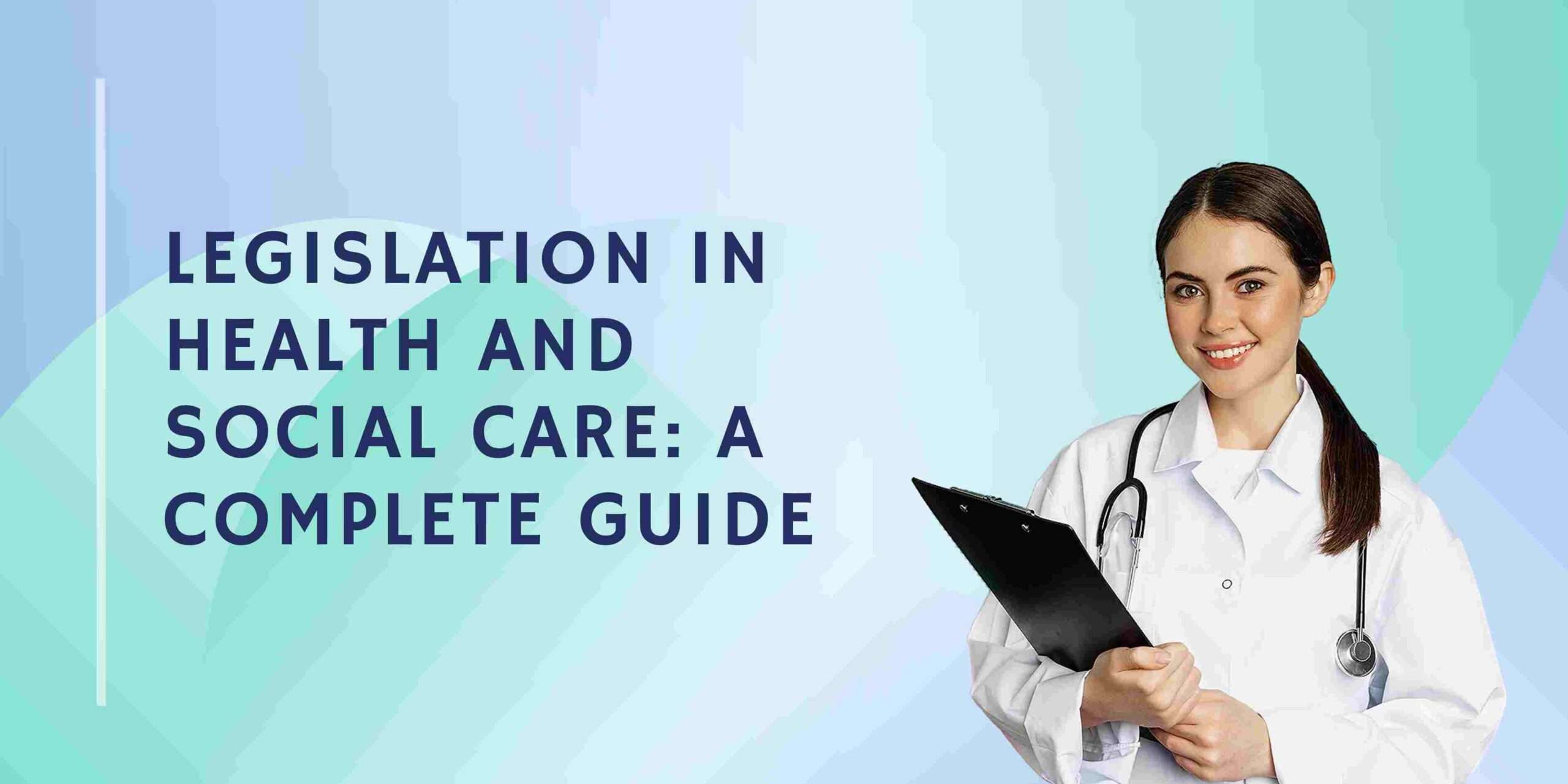Introduction
In the UK’s dynamic health and social care sector, legal frameworks form the bedrock of safe, ethical, and effective care. These laws ensure that services protect individuals’ rights, promote equality, and operate with accountability. Understanding legislation in health and social care is essential for professionals, students, employers, and service users alike.
This comprehensive guide will take you through the key laws, their applications in practice, how they affect service delivery, and how professionals can remain compliant while putting people at the centre of care.
Why Is Legislation Important in Health and Social Care?
- Protects individuals’ rights and dignity
- Ensures safeguarding and safety standards
- Promotes equality and anti-discrimination
- Establishes professional boundaries and responsibilities
- Provides a framework for complaint and redress
Key Legislation in Health and Social Care
1. The Care Act 2014
Summary:
- Governs care for adults in England
- Focuses on well-being, prevention, and personalisation
- Legal duty to assess needs and support carers
Applications:
- Duty of local authorities to provide services
- Safeguarding adults at risk
- Promotes independence and choice
2. Children Act 1989 and 2004
Summary:
- Protects children’s welfare
- Ensures services work together for safeguarding
Applications:
- Child protection protocols
- Early intervention and family support
- Duty to promote welfare of looked-after children
3. Health and Social Care Act 2012
Summary:
- Restructured NHS services
- Gave patients more control over their care
Applications:
- Clinical Commissioning Groups (CCGs)
- Duty of transparency and quality assurance
- Promotes integration between health and care services
4. Mental Capacity Act 2005
Summary:
- Protects individuals who lack the ability to make decisions
- Introduces “best interest” decisions and advocacy rights
Applications:
- Mental capacity assessments
- Use of Independent Mental Capacity Advocates (IMCAs)
- Lasting Power of Attorney and advance decisions
5. Equality Act 2010
Summary:
- Prohibits discrimination on protected characteristics
- Promotes equal treatment in care and employment
Applications:
- Accessible facilities and communication
- Staff training on unconscious bias
- Reasonable adjustments for disabilities
6. Human Rights Act 1998
Summary:
- Incorporates European Convention on Human Rights into UK law
Applications:
- Right to life, liberty, privacy, and family life
- Prevents degrading or inhumane treatment
- Supports dignity and autonomy in care
7. Data Protection Act 2018 / GDPR
Summary:
- Regulates use, storage, and sharing of personal data
Applications:
- Confidential record keeping
- Lawful sharing with consent or safeguarding concerns
- Data breach protocols
8. The Safeguarding Vulnerable Groups Act 2006
Summary:
- Establishes vetting and barring scheme via DBS
Applications:
- Ensures safe recruitment
- Mandatory background checks for staff and volunteers
9. Mental Health Act 1983 (amended 2007)
Summary:
- Allows for compulsory treatment for mental illness
Applications:
- Detention under specific criteria
- Rights to advocacy and appeal
Other Important Laws and Regulations
- Public Health Act 1984
- Children and Families Act 2014
- Freedom of Information Act 2000
- NHS Constitution for England
- Working Together to Safeguard Children (statutory guidance)
Legal Bodies and Oversight Organisations
- Care Quality Commission (CQC)
- Health and Care Professions Council (HCPC)
- General Medical Council (GMC)
- Nursing and Midwifery Council (NMC)
- Office for Standards in Education (Ofsted)
Legislation in Practice: Real-World Examples
1. Confidentiality and GDPR
A care worker ensures patient records are stored securely and not shared without consent, except in safeguarding scenarios.
2. Safeguarding via the Care Act
A social worker initiates a safeguarding adults enquiry after concerns about neglect in a care home.
3. Equality in Action
A healthcare provider offers sign language interpretation for a deaf patient to ensure equal access to care.
How Legislation Impacts Professionals
| Area | Impact |
| Training | Mandatory CPD on laws like GDPR, safeguarding |
| Documentation | Accurate records for compliance and accountability |
| Decision-making | Risk assessments, consent procedures, duty of care |
| Accountability | Disciplinary action for non-compliance |
Challenges of Implementing Legislation
| Challenge | Strategy to Overcome |
| Staff shortages | Efficient scheduling and clear prioritisation |
| Lack of legal awareness | Ongoing training and access to legal resources |
| Cultural barriers | Inclusive practice policies and diversity training |
| Complex cases | Supervision and ethical consultations |
Training and Resources for Understanding Legislation
- Skills for Care e-learning modules
- SCIE (Social Care Institute for Excellence) guides
- Local authority workshops
- Online courses via FutureLearn, OpenLearn
Embedding Legal Literacy into Workplace Culture
- Induction sessions with legal frameworks
- Team meetings discussing current legal updates
- Posters and reminders of key legislation
- Ethics and law champions within teams
The Role of Policies and Procedures
Every care organisation translates legislation into policies and procedures that guide daily work:
- Safeguarding policies
- Equality and inclusion statements
- Data protection policies
- Complaint procedures
Evaluating Compliance with Legislation
- Internal audits
- Annual training refreshers
- Spot checks and unannounced inspections
- User feedback and safeguarding reports
Future Trends in Health and Social Care Law
- Digital health legislation (AI, data ethics, digital consent)
- Mental health reform for increased autonomy
- Stronger adult social care integration laws
- Post-Brexit regulation updates
Final Thoughts
Understanding and applying legislation in health and social care isn’t about legal jargon—it’s about protecting rights, ensuring safety, and delivering quality services. From frontline carers to service managers, everyone plays a part in legal compliance.
By embracing legal knowledge and integrating it into daily care practice, professionals not only meet requirements—they raise standards. Whether you’re training to enter the field or leading a multidisciplinary team, staying legally informed is key to providing ethical, lawful, and compassionate care.
Read More: Ethical Principles Health and Social Care: A Complete Guide







